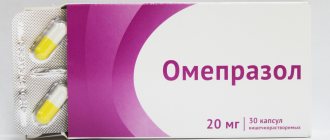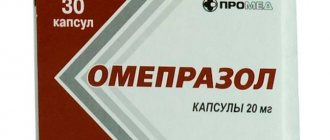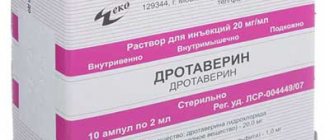Medicines for heaviness in the stomach are drugs that help eliminate symptoms and improve the patient’s well-being. At the same time, it should be understood that taking medication alone will not be enough to eliminate this clinical manifestation. To completely eliminate the disease, you should review your diet and approach eliminating the disease in a comprehensive manner.
Medicines for heaviness in the stomach will primarily be aimed at:
- elimination of unpleasant sensations;
- improvement of gastric motility;
- preventing the development of associated symptoms;
- restoration of normal functioning of the gastrointestinal tract;
- improvement of the patient's condition.
Drugs used
All medications for heaviness in the stomach can be divided into the following pharmacological groups:
- prokinetics – this remedy helps eliminate stomach pain, improves gastric motility;
- pancreatic enzymes - medications of this pharmaceutical group are aimed at stimulating the functioning of the stomach; they are recommended to be taken before meals or immediately after meals;
- Antacids – normalize pH levels and help get rid of heartburn. However, it should be noted that without complex therapy and diet correction they will not produce the desired effect;
- antispasmodics - drugs of this group can eliminate mild pain and spasms in the abdominal cavity, but, like antacids, they are ineffective without complex therapy;
- proton pump inhibitors – normalize acidity in the stomach, which helps eliminate heartburn;
- antidiarrheal;
- antiemetics.
Which medications to take during treatment can only be determined by the attending physician, after clarifying the diagnosis during the necessary diagnostic measures.
Omez (20mg N30)
Every day we eat, sometimes without thinking about what and how we eat, and without suspecting that one day our stomach and liver may go on strike, so much so that grown men cry like children Pain in the upper abdomen, girdling , when it’s hard to even breathe, a sour taste in the mouth, heartburn, and then a doctor’s appointment, tests, pills, a strict diet, in which “a step to the right, a step to the left” is tantamount to “execution.” Yes, life fades when such important organs as the stomach and liver hurt; note: we do not at all diminish the importance of other organs! What are the main causes of pain in the stomach, why can the liver fail, what archi products are harmful to them, and how can you warn on your own or with the help of doctors, prevent trouble, when the “first bells” ring, what is the prevention? Ruseikin Vladimir Mikhailovich - gastroenterologist.
Pancreatic enzymes
Among this group of drugs, the following anti-overeating pills should be highlighted:
These medications can be used both to relieve the symptomatic manifestations of this symptom and as prescribed by a doctor. In any case, you should pay attention to contraindications. So, you should not take these medications in the following cases:
- during pregnancy and breastfeeding;
- in case of individual intolerance to some components of the drug;
- if the diagnosis is not specified.
Each medicine has its own side effects, which you need to be aware of before taking them.
Omez dsr: instructions for use
Omez Omez: 16 reviews from doctors, 46 reviews from patients, instructions for use, analogues, infographics, 2 release forms. The most common drug from the group of proton pump blockers. Omeprazole was one of the first to appear on the market and has established itself as an effective drug for reducing gastric secretion. Easy to use, effectiveness comparable to the original drug, affordable price. Suitable for both course treatment and for use as needed for gastroprotection. The drug is outdated, there are fakes, there are many low-quality generics at a very low price. A large number and high frequency of side effects.
Prokinetics
A substance from this category not only helps eliminate an unpleasant symptom in the stomach after eating, but also normalizes gastric motility, which also helps eliminate discomfort. This pharmacological group includes the following drugs:
Like other medications to eliminate this clinical manifestation in the abdomen, they have several contraindications. Thus, drugs in this category are strongly not recommended for use if the following factors occur:
- the presence of gastric ulcer and gastritis;
- severe toxicosis;
- breastfeeding period;
- the patient’s age is less than 12 years, some drugs can be given to a child over three years old, but this needs to be clarified with the doctor individually;
- exacerbation of cholecystitis;
- allergic reactions to certain components;
- internal bleeding.
Nutritional features and prevention
Small meals will help get rid of many problems with the stomach and intestines.
Regardless of whether belching is normal or a symptom of a disease, you must adhere to some dietary rules to avoid problems in the future:
- Meals should be fractional. Fractional meals in small portions at short intervals help get rid of many problems with the stomach, intestines, weight, etc. You need to eat little by little, but every 3-4 hours, without washing down your food with water.
- Drink enough fluids. All metabolic processes in the body take place in water; liquid is necessary for the normal functioning of the stomach and intestines. You need to drink unsweetened liquids, preferably only pure or still mineral water, green tea, natural juices and compotes.
- Don't forget about physical activity. Physical exercise will help get rid of belching and heaviness in the stomach. Of course, it’s not recommended to go jogging after lunch, but you shouldn’t go to bed right away either. You can walk around a little. Regular physical activity helps normalize metabolism.
- Avoid foods that irritate your stomach. Hot spices, flavoring additives and flavor enhancers, chips, sweets, especially with cream and chocolate, fatty meats, fried and sour (salt foods, sour berries and fruits) are considered harmful to the stomach. It is also advisable to reduce the consumption of flour and products that increase gas formation (legumes, cabbage, soda).
- Eliminate bad habits. Quitting smoking and drinking alcohol will not only relieve belching and heaviness in the stomach after eating, but will also help improve the condition of the body as a whole.
- Visit your doctor regularly. To prevent diseases, it is necessary to promptly identify disorders in the body. For this purpose, you need to visit a doctor once a year and take a blood test, which contains more than 80% of all information about the condition of the body.
Most problems with the gastrointestinal tract can be avoided if you follow nutritional rules and do not deviate from your diet.
Heaviness in the stomach causes inconvenience and interferes with normal work and rest. It may be a consequence of an unbalanced or unhealthy diet. However, this is far from the only reason for unpleasant sensations. What can cause heaviness and how to get rid of this painful condition?
Antacids
Drugs of this pharmacological group include medications for heartburn; the following are considered the most effective:
- in case of acute or liver failure;
- excessive calcium in the blood;
- hypersensitivity or complete intolerance to some components of the drug;
- period of bearing a child or breastfeeding. In such cases, heartburn pills are not strictly prohibited, but it is recommended to consult a doctor.
Antispasmodics
For stomach pain, your doctor may prescribe antispasmodics. Drugs in this group can quickly eliminate intense pain and spasms. In this case, the following medications should be highlighted:
Before using products in this category, you need to pay attention to the following contraindications:
- age restriction - some drugs should not be taken by children under 12 years of age;
- the period of bearing a child and breastfeeding;
- the presence of chronic diseases, not only regarding the gastrointestinal tract;
- individual intolerance to some components.
Also, medications in this group have some side effects, the most common of which are:
- dizziness or headache;
- nausea, which may be accompanied by vomiting;
- diarrhea or constipation.
At the same time, it should be noted that side effects occur only if the dosage or contraindications are not observed.
Enterosorbents (adsorbents)
Tablets for bloating and gas formation can also be classified as sorbents. These pharmaceutical drugs absorb toxins, helping to eliminate flatulence. The most famous and inexpensive sorbent is activated carbon.
White coal
White coal is a dietary supplement that improves intestinal functioning and absorbs toxic substances.
The following are contraindications:
- pregnancy and lactation;
- age limit up to 3 years;
- stomach ulcer;
- ulcers in the intestines;
- intestinal obstruction;
- intestinal or stomach bleeding.
Tablets for bloating and gas formation, white charcoal and activated charcoal have different effects!
Dosage for adults: 4 tablets three times a day. If necessary, the daily dose can be increased. The duration of the course is determined by the doctor.
Activated carbon
Activated carbon effectively helps with both poisoning and bloating.
Contraindications are: ulcers and bleeding in the intestines or stomach, intestinal atony.
For flatulence, activated carbon is taken for 7 days, 2 g 3 times a day. The drug is taken one hour before meals or 2 hours after meals.
Lactrofiltrum
The drug is prescribed to remove toxins from the body. One of the active components – hydrolytic lignin – acts as a sorbent.
Contraindications:
- intestinal obstruction;
- bleeding in the gastrointestinal tract;
- individual intolerance;
- galactosemia.
During pregnancy and breastfeeding, intestinal atony and gastric ulcer, taking the drug is possible, but only after consulting a doctor.
Sometimes flatulence may increase as a side effect during treatment with the drug.
"Lactrofiltrum" is taken an hour before meals, three times a day, 2-3 tablets at a time. Approximate course duration: 2 weeks.
Filtrum
Like Lactrofiltrum, the drug helps to cope with dysbiosis, normalize the functioning of the digestive system, and remove harmful substances.
Contraindications and side effects are the same as for the previous remedy. Dosage: 2-3 tablets up to 4 times a day (60 minutes before meals). Standard course duration: 7 days.
Entegnin
The dietary supplement "Entegnin" has a positive effect on digestion and metabolism, minimizes disruptions in the gastrointestinal tract, binds and removes toxins. The preparation, in addition to the sorbent (hydrolytic lignin), contains vitamin C.
Contraindications:
- breast-feeding;
- age limit up to 12 years;
- pregnancy.
Tablets are taken before meals or with food: 2-3 pcs. three times a day.
Smecta
The powder for preparing the solution contains the active substance diosmectite. Stops diarrhea, binds and removes toxins and gases.
Contraindications:
- intestinal obstruction;
- individual intolerance;
- fructose intolerance;
- problems with the absorption of galactose and glucose.
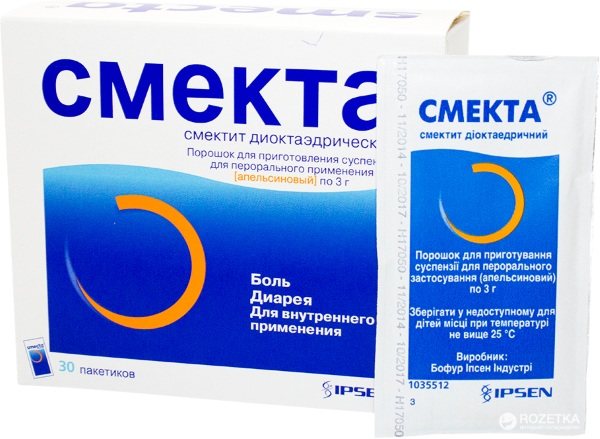
Side effects:
- constipation;
- allergic reaction;
- vomit;
- flatulence.
Approximate dosage: 1 sachet three times a day (60 minutes before meals or 2 hours after meals). Duration: at least 3 days.
Proton pump inhibitors
PPI drugs include five drugs that help normalize acidity in the stomach and eliminate corresponding unpleasant symptoms. This category includes the following medications:
Contraindications to taking such drugs are pregnancy, breastfeeding, and individual intolerance to some components of the drug.
Only a qualified medical specialist can tell you exactly what pills to take for heaviness in the stomach. It is strongly not recommended to take any medications solely at your own discretion, as this may provoke the development of complications. You also need to take into account the fact that taking medications can only eliminate the symptoms, but not the disease itself.
How to prevent
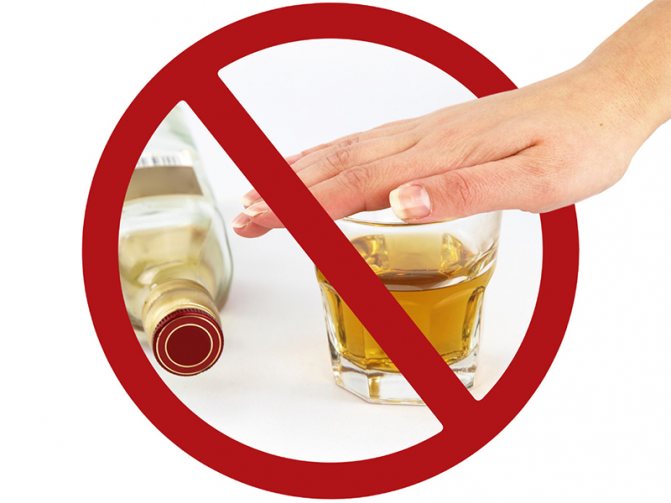
If you notice a tendency to develop heaviness in your stomach after a heavy meal, then you should not wait for problems to develop in your own body. In order to remove such sensations, you need to follow a few simple rules:
- Do not eat large amounts of food at one meal.
- Avoid drinking alcoholic beverages, especially those with a high percentage of ethyl alcohol.
- Limit your intake of spicy, sour and sweet foods, especially if you have chronic gastritis.
- Stop smoking to allow your body, including your gastrointestinal tract, to fully recover.
- If possible, avoid stressful situations and intense experiences, as they tone the sympathetic nervous system, which is manifested by stomach spasms.
Folk remedies
Among the medications for belching and heaviness in the abdomen, there are also traditional medicines, which are also strongly recommended to be used only after consultation with your doctor.
To eliminate this clinical manifestation, it is rational to use the following:
- steamed dill seeds;
- a decoction of chamomile or chamomile and yarrow;
- decoction of calamus root;
- a drink made with fennel, to which you can also add chamomile. This remedy is used to eliminate bloating in children;
- tea with cumin.
Such traditional medicine can also be used as a preventive measure.
It should also be understood that taking medications for belching, bloating and heaviness in the abdomen alone will not be enough to completely eliminate such clinical manifestations. Treatment should be comprehensive, with mandatory diet therapy.
How to recognize that overeating has caused heaviness in the stomach
Did you snack on the run during the day, did your diet include fatty or fried foods, did you not feel full, and did breakfast smoothly turn into lunch and dinner? Then overeating took place, even if it seems to you that nothing major was eaten.
What sensations may there be:
If these symptoms occur, you should consult a doctor, because pain and discomfort can be caused by gastritis, duodenitis or colitis in the intestines - all these problems can be resolved at an early stage by following a diet and taking the necessary medications.
The main causes of gas formation and bloating, treatment features
The occurrence of increased gas formation is sometimes explained by one of the following reasons:
- Poor nutrition: consumption of certain plant products (legumes, fresh white cabbage, apples, bell peppers, onions, radishes), yeast baked goods, sausages and confectionery products, milk, carbonated drinks.
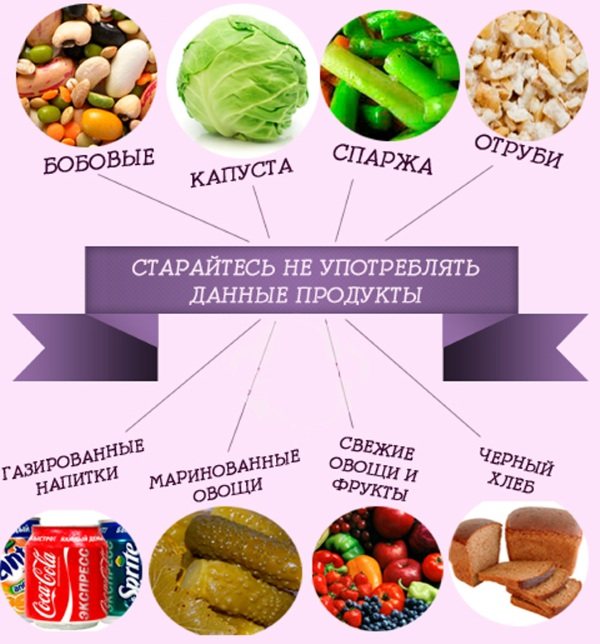
- Constant stress, nervous shock and anxiety.
- Intestinal dysbiosis, which is caused by taking medications (antibiotics).
- Late pregnancy.
- Diseases of internal organs.
First, change the diet, minimizing the consumption of unwanted foods. In case of dysbacteriosis, they begin to restore the microflora by taking probiotics. To identify (or exclude) possible diseases, they undergo examination.
Enzyme tablets for overeating
Enzymes, or enzymes as they are called, have the ability to enter into a chemical combination with digested food, break it down into proteins, fats and carbohydrates, thereby improving digestion and increasing the speed of food digestion.
In order to recognize that it is enzyme preparations that need to be used, you need to see a doctor, take tests for the production of enzymes; if a problem is really detected, then the doctor prescribes a medicine from this group.
- Yuenzyme (unienzyme) - the medicine contains the enzymes papain and fungal diastase, which cope with the problems of digesting food; due to simection, gas formation is combated and activated charcoal completes the cycle of helping the stomach. This product has a low price (within 100 rubles per package), but high-quality action;
- Pancreatin - the name itself is the name of the enzyme. A cheap drug (its cost is up to 50 rubles), containing pancreatic enzymes, preventing discomfort and heaviness. It helps not only in the fight against endocrine insufficiency of the stomach, intestines, but also the gallbladder, and has an anti-inflammatory effect;
- Mezim can be classified as an analogue of pancreatin, but pancreatin has a more severe effect. Mezim contains high enzyme activity, which makes the tablets effective and possible for use for children, unlike pancreatin;
- Creon - a drug with a high enzymatic effect helps both in dysfunction of the gastrointestinal tract and in leading a sedentary lifestyle, eating disorders, eating fatty foods, and can be taken for children from infancy.
Blocking symptoms with drugs: a review of remedies
If flatulence is caused by a serious illness, pharmaceutical drugs will not be able to completely remove the discomfort - they only guarantee a temporary improvement.
Medicines that relieve bloating can be divided into 6 groups:
- Defoamers (carminatives);
- sorbents;
- prokinetics;
- enzyme preparations;
- probiotics and prebiotics;
- antispasmodics.
The names of some pharmaceuticals are given in the table:
| Defoamers | Sorbents | Prokinetics | Enzyme preparations | Probiotics, prebiotics | Antispasmodics |
| Espumisan | Enterosgel | Motilium | Festal | Bifiform | Papaverine |
| Kolykid | Activated carbon | Eglonil | Mezim Forte | Linex | Duspatalin |
| Sub Simplex | White coal | Trimedat | Abomin | Hilak Forte | Drotaverine Forte |
| Pepsan-R | Polysorb | Ganaton | Pangrol | Lactobacillus | Spasmalgon |
Antacids - drugs to neutralize acid
Such medications are used most often; their use, as a rule, is of an emergency nature and is possible without a doctor’s prescription.
The category of antacid medications includes:
- Phosphalugel is a drug that is used for both children and adults in situations with difficult digestion of food, gastritis, erosion and poisoning. Neutralizes acid, envelops, heals the gastric mucosa. Reviews of this drug are mostly positive, both as an aid for overeating and as long-term therapy.
- Maalox has a similar effect to phosphalugel, coats the walls of the stomach and reduces the acidity of gastric juice.
- Almagel.
What pills to take
Modern medicine offers several drugs to eliminate gastric problems:
- Among the enzymes, Pancreatin and Mezim have proven themselves. They act as natural enzymes produced by the pancreas. And they promote rapid digestion of food. They can be taken in the amount of one or two tablets after or during meals, which will immediately relieve the discomfort that arose after overindulging in heavy food.
- Antispasmodic drugs - Drotaverine, No-Shpa, relax muscle tissue throughout the body and internal organs. Thus, heaviness and pain go away. These medications can be purchased at pharmacies without a prescription. And you need to take it according to the instructions.
- Prokinetics are also an excellent remedy for the treatment of “heavy belly”. For example, Motilium. This remedy helps strengthen the motility of the upper gastrointestinal tract. Stale food moves forward, and along with it the feeling of heaviness goes away. Motilium should be used when there is heaviness in the stomach, accompanied by increasing heartburn.
- Inhibitors include drugs such as Pantoprazole, Famotidine, Ranitidine. Their purpose is to reduce the production of hydrochloric acid, relieve inflammation in the mucous membrane, which was the cause of gastric heaviness. But such drugs are often used in complex therapy. It is possible to treat severity with inhibitors, but it is not necessary; it is better to discuss this with a doctor. Typically, treatment in this case is complex, especially if we are talking about increased production of gastric juice.
- Antacids are more popular; they are recommended to be taken when there is heaviness in the digestive organ. These are products such as Gaviscon, Maalox, Rennie. They very quickly bring relief, enveloping the walls of the stomach, relieving heaviness and heartburn. Drink when you feel the first signs of heartburn. But you shouldn’t put off a visit to the doctor, as heartburn can be a symptom of a serious illness.
There are many other drugs. They will help relieve discomfort. But the doctor makes the choice based on an examination, prescribing treatment, taking into account indications and contraindications.
Antispasmodics - first aid for pain
Abdominal pain sometimes requires emergency assistance, especially when the pain intensifies. This is what antispasmodics are designed for, they will relieve spasms and help continue treatment without feeling acute pain.
These medications include:
- Drotaverine is a powerful remedy that helps quickly relieve spasms of the gastrointestinal tract, relaxes smooth muscles;
- Meteospasmil eliminates spasms caused by flatulence, diseases of the gastrointestinal tract and simply the consequence of a one-time overeating;
- Duspatalin.
Prokinetics - drugs to combat heaviness in the abdomen and the consequences of poisoning
Prokinetics are drugs that have an antiemetic effect. They are fast-acting drugs in case of poisoning, normalize the functioning of the gastrointestinal tract and prevent the formation of nausea-vomiting reactions and relapses.
Prokinetics in this area of application include:
- Motilium - the main effect is exerted by domperidone, it has no effect on gastric secretion and accelerates gastric cleansing. Copes with flatulence, nausea, heartburn;
- Cerucal;
- Other analogues of Motilium: Perinorm, Ceruglan, Intomed.
The number of drugs is exhaustive, but before resorting to their use, you must consult a doctor, undergo the necessary examinations, such as gastroscopy, fluoroscopy and ultrasound, take blood tests, and only after that the doctor will make the necessary prescriptions.
In order to prevent the appearance of painful sensations or prevent a relapse, it is necessary to carry out prevention; medications will also help with this, but of a milder effect with a cumulative therapeutic effect.
Review of tablets and medications for bloating
- Gastrointestinal tract
- Treatment and Symptoms
- flatulence
Bloating is a fairly common problem associated with the accumulation of gases in the intestines, which manifests itself in the form of flatulence, a feeling of heaviness in the abdominal area and often painful sensations. There are many different ways to combat bloating, including various diets and folk remedies, but the most effective traditionally are anti-bloating pills, which can quickly and safely deal with the problem.
How to distinguish bloating?
Bloating, or flatulence, is a pathological condition in which a large amount of gas accumulates in the intestines. The disorder has the following symptoms:
- Enlarged abdomen, hard to the touch.
- Feeling of heaviness and fullness.
- Rumbling stomach, belching and hiccups.
- Lack of appetite and frequent headaches.
- Cramping and stabbing pain after passing gas.
- Unpleasant taste in the mouth.
Bloating is not an independent disease, and is possible in the presence of certain pathologies, even in a healthy intestine, if its performance is impaired, as well as in the presence of the following factors:
- Chronic pancreatitis, in which there is a lack of pancreatic enzymes, and signs of bloating are observed when eating any food.
- Dysbacteriosis, in which the disturbed balance of microflora allows pathogenic organisms to multiply unhindered, producing ammonia, methane and hydrogen sulfide.
- Inflammatory process in the gastrointestinal tract with colitis, Crohn's disease or pancreatitis.
- Irritable bowel syndrome, which causes disorders of its motor function and is accompanied by painful sensations.
- Peritonitis, intoxication due to intestinal infection.
- Lactose intolerance - in the absence of enzymes that facilitate the absorption of milk sugar.
- Intestinal obstruction, in which there is difficulty passing gases due to polyps or the presence of a tumor.
- Inadequate digestion due to impaired intestinal absorption.
- Celiac disease is a rare disease in which gluten is not completely broken down and produces toxins that damage the intestinal mucosa.
In addition to the above-mentioned disorders, the main causes of bloating are violations of the diet and principles of proper nutrition, which manifests itself in the following:
- Excessive consumption of carbonated drinks, which leads to excessive accumulation of gases.
- Swallowing air while eating.
- A large amount of food eaten, which provokes fermentation, as well as excessive consumption of baked goods, brown bread, sweets, potatoes, legumes and other foods high in starch, easily digestible carbohydrates or fiber.
- Mixing while taking certain types of incompatible products. For example, fruits are eaten an hour before meals or 2 hours after meals.
Treatment with baking soda may cause bloating when trying to relieve heartburn. The substance neutralizes hydrochloric acid in gastric juice and leads to increased gas formation.
To determine the cause of bloating, the following diagnostic tests are performed:
- Ultrasound of the gastrointestinal tract.
- Colonoscopy.
- Gastroscopy.
- Laboratory tests of blood and stool.
Prevention of pain and heaviness in the stomach
In order to prevent the appearance of pain caused by heaviness and overeating, it is necessary to do prophylaxis. But first you need to figure out what the repeated increase in the required amount of food will lead to when consuming it once:
To be clear, you don’t need to eat to the limit of your capacity; it’s better to undereat a little than to stretch your stomach and reap further adverse consequences. What's next?
To begin with, this is a dietary diet that should exclude the consumption of the following foods:
- fatty, fried foods with a lot of oil. Replace with cooking in the oven or steaming;
- eliminate high salt content in the diet, limit spices, which can also lead to heartburn;
- remove sweets and starchy foods from the menu. If it is not possible to do this right away, replace it with marmalade, marshmallows and fruit marshmallows. Bread yesterday is allowed, dried, crackers are allowed;
- replace fresh fruits and vegetables with steamed ones: for example, an apple baked in the oven, cauliflower and broccoli in a steamer;
- temporarily exclude dairy products, but do not neglect lactic acid products - kefir, fermented baked milk, yogurt;
- eat dishes that include lean beef, turkey, skinless chicken;
- prepare the broths weak, drain the primary broth, add more vegetables;
- exclude the consumption of exotic foods and non-seasonal products. Unusual food can provoke pain and become a source of poisoning.
To maintain your diet at work, you can take healthy snacks with you in the form of muesli bars, baked vegetables, and salads. Do not neglect the rule: it is better to eat more often and in small portions than the first, second and third three times a day.
Also, you should not eat food in a hurry - this does not bring you a feeling of fullness and you will want to add another portion to your portion.
But if the diet itself is powerless, pain occurs periodically, then you cannot do without medications. As part of drug therapy, you can try the following drugs, which must be taken in a course to normalize the functioning of the gastrointestinal tract:
- Trimedat;
- enterosorbents smecta and neosmectin - envelop, remove toxins, are able to fight the viral and infectious nature of abdominal pain and the occurrence of heaviness and nausea;
- the enzymes mezim and festal can also be used in a course to improve stomach function and reduce heaviness;
- the antiseptic enterofuril helps calm the stomach, envelops it, speeds up the process of digesting food, and at the same time removes discomfort.
Probiotics and prebiotics
Bloating can be the result of intestinal dysbiosis. In this case, start taking probiotics and prebiotics. Probiotics contain microorganisms that help eliminate intestinal problems. The beneficial substances contained in prebiotics normalize the microflora of the large intestine.
Lactovit Forte
The probiotic “Lactovit Forte” is suitable for the treatment of dysbiosis. Take it 40 minutes before. before meals, 2-4 capsules 2 times a day. Course duration: 1 month.
Maxilac
The dietary supplement "Maxilak" contains a probiotic along with a prebiotic. Adults take the drug 1 capsule once a day. Duration of treatment: 1 month.
Linex
Linex capsules are taken 3 times a day, 2 pcs.
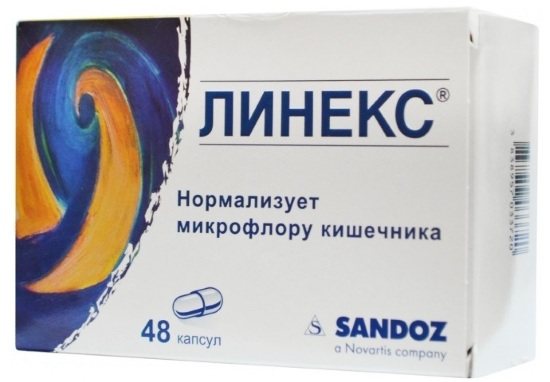
The duration of the course depends on the condition of the body and is determined individually.
Probifor
Probifor capsules are recommended to be taken with food. Dosage: 2 to 3 capsules twice daily. Course of treatment: up to 5 days (possibly increasing the period).
Hilak Forte
"Hilak Forte" - drops that are dissolved in a small amount of water. The drug is drunk during meals, three times a day, 40-60 drops. The duration of the course is determined individually.
Bifidumbacterin Forte
The powdered product should be consumed before meals, after mixing with liquid. To treat dysbiosis, drink 2 powders of the drug three times a day. The course lasts from 5 to 14 days.
Lactobacterin
Before use, the powdered product is diluted with water and drunk half an hour before meals. Dosage for adults: 5 doses 3 times a day. The course lasts 1 month.
Acipol
Acipol capsules are taken shortly before meals - 1 piece. 4 times a day. Duration of therapy: 6-7 days.
Bifiform
"Bifiform" is drunk twice a day, 1-2 capsules. Therapy may take up to 3 weeks.
Causes of heaviness in the stomach
Heaviness in the stomach can be the cause of any diseases or simple non-compliance with nutritional rules. In order to prescribe effective measures to combat it, it is important to identify the main prerequisites for the occurrence of such a feeling. As a rule, if the severity does not arise due to overeating, but for some other reasons, then taking medications that eliminate this particular symptom will simply not be enough. It is important to treat the disease itself, and not relieve the symptoms.
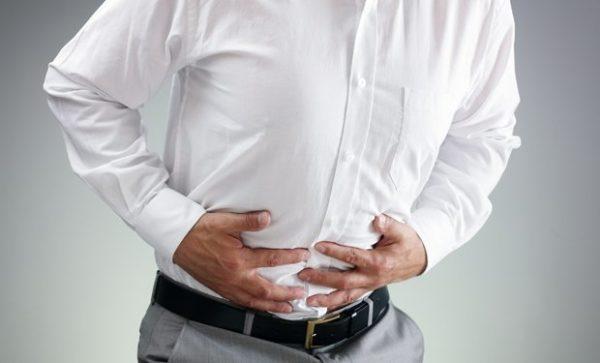
Heaviness in the stomach
The causes of heaviness in the stomach can be:
- poor nutrition;
- binge eating;
- stress;
- gastrointestinal diseases;
- excess weight.

Excess weight is one of the possible reasons
The most common cause of heaviness is eating large quantities of food that cannot be quickly absorbed by the stomach. These can be fatty, fried foods, baked goods, soda, etc. As a rule, to eliminate problems, it is enough to start taking some kind of drug that improves the functioning of the stomach, as well as adjust your diet. It is important to switch to frequent meals in small quantities, as well as eliminate a number of foods and give up alcohol.
Advice! An active lifestyle and providing a favorable emotional environment can have a truly healing effect on the stomach and the body as a whole. Therefore, for people who often notice the appearance of heaviness in the stomach, it is recommended to make friends with sports, walks in the fresh air and reduce the number of stressful situations.
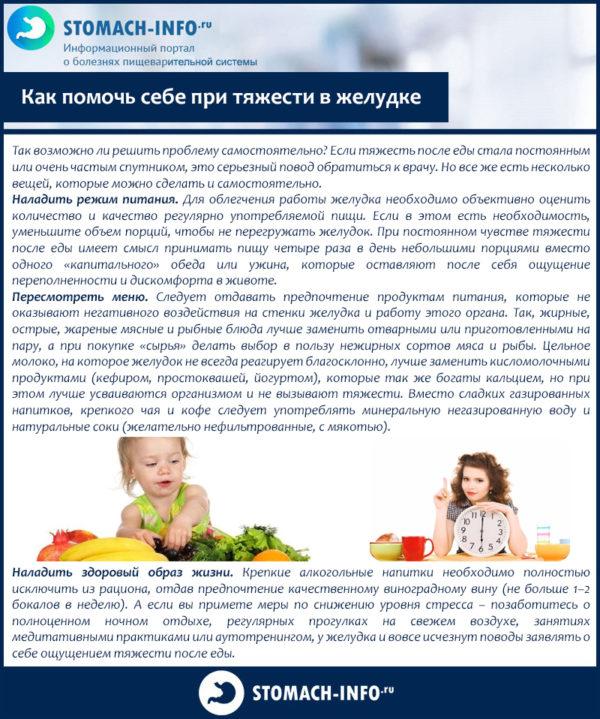
How to help yourself with heaviness in the stomach
It is important to remember that if severity occurs frequently, it is important to consult a doctor and carry out therapeutic measures only under his supervision. It is especially important to do this if a person has any other diseases, due to which there may be restrictions on taking even the simplest medications to improve the functioning of the stomach and intestines. It is also important to go to the clinic immediately if a person notices a fever, vomiting or diarrhea, and food is not digested. Lack of appetite, fatigue, abdominal pain, pale skin, etc. can serve as a signal to promptly contact a doctor.

Regular heaviness in the stomach is a reason to consult a doctor
Associated symptoms

How to recognize that the discomfort felt inside is from the stomach? There are a number of symptoms that directly indicate problems with the gastrointestinal tract. Frequent consumption of semi-finished products, an abundance of carbohydrate foods, and difficult-to-digest foods (mushrooms, hard-boiled eggs) are to blame. The discomfort will develop into a big problem called gastritis. Changing your attitude towards food choices will no longer be enough. You will have to take medications under the supervision of doctors.
Burning and pain in the abdomen
The appearance of heartburn, and often painful attacks, when digesting food just eaten, occurs due to the fact that the release of hydrochloric acid is excessive. Under the influence of a natural disinfectant and digestive mixture and products, the esophageal valve relaxes. Some of the gastric juice splashes into the esophagus. In this case, a person often feels a burning sensation and bitterness coming from the stomach. Foods that cause heartburn in the stomach:
- fatty foods;
- confectionery, chocolate (milk);
- high strength alcohol;
- highly carbonated drinks;
- spicy seasonings;
- garlic, onion;
- sour fruits, citrus fruits and juices;
- tomatoes;
- fried foods.
Short-term pain in the epigastric region or abdomen can occur due to frequent overeating or snacking while running dry. Isolated cases occur due to poisoning. Acute, recurrent attacks should not be ignored. They may be harbingers of gastritis and colitis. Spicy, overly spicy foods, irritating the mucous membranes of the stomach, often cause painful sensations.
Nausea and vomiting
An unpleasant tugging feeling inside the stomach, cramps and final vomiting can indicate the consumption of low-quality water, food or a large amount of food eaten. When gastric motility is disrupted, the mass that has begun to be digested is pushed toward the esophagus and oral cavity by the muscles. It brings physical relief. There are often cases when vomiting is caused by poisoning from alcoholic beverages or large amounts of nicotine. Sometimes the body reacts to stressful situations with nausea and vomiting. In such cases, it is not the stomach that needs to be treated, but the nervous system.
Feeling of bloating, distension and gas
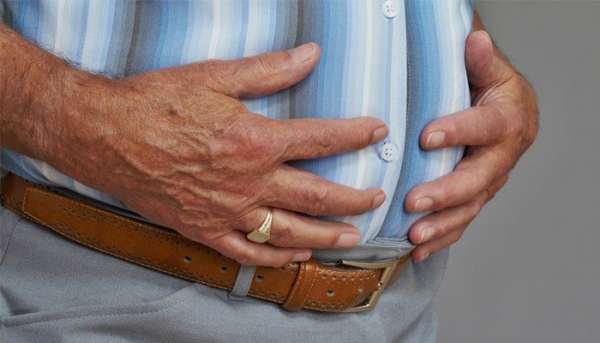
Swallowing food quickly without chewing thoroughly and talking is often harmful. Bad habits lead to the fact that the gastrointestinal tract begins to burst with overflowing gases. This can create awkward, ambiguous situations. Violation of the percentage of “beneficial” intestinal flora, which often occurs after a course of antibiotics, causes:
- fermentation of digestion products;
- bloating;
- excessive gas formation.
Pregnant women often complain of abdominal sensitivity and increased flatulence. Symptoms will appear due to physiological changes in the body and compression of the intestinal walls by the enlarging uterus. Sometimes gases that do not pass out on time provoke painful cramps not only for the abdomen, but also for the stomach. There is a list of foods that contribute to increased gas formation, which people prone to flatulence should avoid in their diet:
- a large number of sweets;
- rye flour products;
- legumes;
- cabbage.
Discomfort in the intestines - diarrhea or constipation
Due to disruption of the digestive system (dyspepsia), deviations in the quality of feces appear in the intestines. When irritated, the gastric mucosa often reacts with diarrhea. Food is not completely digested and is quickly eliminated from the intestines. This is especially common in the morning. Sometimes the stomach and intestines react in the opposite way - with constipation, when a person has difficulty defecating once in a few days.
In both cases, this causes maximum discomfort and pain for the intestines. Constant urge to go to the toilet or, conversely, distension of the abdomen or stomach brings a lot of trouble into the patient’s life. A qualified doctor will find the cause of deviations from normal intestinal activity after a detailed diagnosis and laboratory tests. Disruption of microflora provokes dysbacteriosis, changes in the normal functioning of the stomach and intestinal motility.
Fever and weakness
When starting a general examination of a patient, doctors always ask about the condition of the intestines and stool. The answer to this question gives a clue to the true cause of the general malaise. Fever and dizziness are common consequences of consuming low-quality products and poisoning them. Poisons that enter the stomach cause attacks of pain, and with severe intoxication a person may lose consciousness.
Gastric lavage and droppers with blood purifying drugs will help return the patient’s condition to normal. Another cause of general weakness are some serious forms of gastritis, pancreatitis, and peptic ulcer of one of the gastrointestinal tract organs. An increase in body temperature indicates the progression of the disease in the abdominal area, its exacerbation, when medical care is urgently needed.
Effect of drugs
All drugs that can be taken to eliminate heaviness in the stomach have different effects. But in general, their work is aimed directly at relieving this syndrome, as well as improving the activity of the stomach and intestinal motility. They will help prevent the development of any other symptoms and restore the functioning of the gastrointestinal tract. In general, they can significantly improve the general condition of the patient. However, all drugs can be divided into several groups according to their activity.
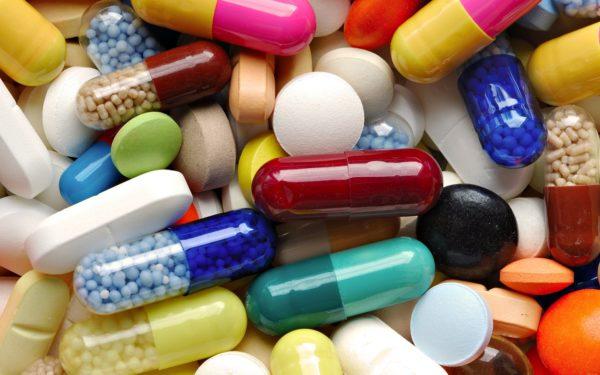
Review of drugs to eliminate heaviness in the stomach
Table. Types of drugs against severity.
| Type | Action |
| Prokinetics | Drugs of this type are aimed directly at improving the functioning of the stomach and can relieve pain. These are the drugs Ganaton, Motilium, Gastrikumel. They should not be taken for obvious toxicosis, during lactation, for gastritis and stomach ulcers, for children under 12 years of age and for internal bleeding. |
| Antacids | Normalize pH levels and eliminate heartburn. But they are effective only when correcting the diet. The group of these drugs includes Smecta, Rennie, Omeprazole, Phosphalugel. Prohibited in case of liver failure, excessive concentration of calcium in the blood, during feeding or carrying a baby. |
| Pancreatic enzymes | These drugs stimulate the functions of the stomach. Take them before meals or immediately after. These include the well-known Micrazim, as well as Pancreatin, Creon and Festal. Such drugs are not recommended for use by pregnant/nursing women or with an unspecified diagnosis. |
| Antispasmodics | Relieves pain and cramps in the stomach area. Effective only with complex therapy. The group of these medications includes Drotaverine, Meteospasmil. The drugs have the following restrictions: cannot be used to treat children under 12 years of age, during breastfeeding or pregnancy, for chronic diseases, especially in the acute phase. |
| Proton pump inhibitors | Eliminate heartburn and normalize acidity levels. These include Esomeprazole, Lansoprazole, Omeprazole and others. They cannot be used, like most other drugs, by expectant and nursing mothers in case of individual intolerance to any of the components included in the composition. |
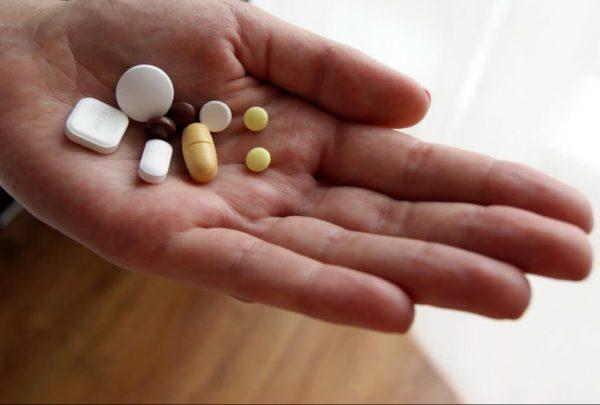
Almost all drugs have contraindications
Where do gastritis and ulcers come from?
- It is known that gastritis can begin with the bacterium Helicobacter pylori, which, developing its vigorous activity in the stomach, has a destructive effect on the mucous membrane. Gastritis is a disease in which inflammation occurs. But bacteria are not the only factor in the development of the disease.
- Taking medications, abusing certain painkillers, or taking long-term medications can destroy the gastric mucosa and cause gastritis.
- Another factor influencing the development of gastritis is increased bile secretion and its reflux into the stomach. We can talk about dysfunction of the liver, which, as part of the digestive system, cannot but affect the gastrointestinal tract.
- There is such a thing as eosinophilic gastritis. which is allergic in nature. In other words, an allergy to some foods does not manifest itself by external signs, but develops on the mucous membrane inside. Many people think that this is a banal intolerance to some foods, but in fact, this can actually mask an allergy.
- And the icing on the cake is the nutrition. The key reason for the development of not only gastritis and ulcers, but also other diseases not related to the gastrointestinal tract. Chemical compounds, preservatives, improper processing of foods, spicy, sour, fatty foods, incorrectly combined foods and lack of culture and diet are sure harbingers of stomach diseases.
Symptoms of gastritis and gastrointestinal diseases
Gastritis can occur in acute outbreaks, or it can take a protracted, sluggish nature, acquiring a chronic form, developing into an ulcer.
Gastric ulcer is a disease in which local defects in the gastric mucosa appear (sometimes involving the submucosal layer). Such defects appear due to excessive production of hydrochloric acid in the stomach, pepsin and bile reflux. The prolonged influence of which on the walls and mucous membrane of the stomach causes trophic disorders in its areas. When to be wary
- Nausea that does not depend on food intake or time of day
- Vomiting, vomiting with poorly digested food remains, long after a meal; vomiting with blood particles
- Pain in the solar plexus and epigastric region is dull, encircling, aching and pressing
- Hunger pain or pain that starts immediately after eating
- Stool disorders
- Heartburn, heartburn with pain, immediately after eating any food.
- Sour taste in mouth, sour belching, frequent belching
- Heaviness and discomfort in the stomach after eating;
- Thick gray or whitish coating on the tongue
- Sour smell and taste in mouth
- Bloating (combined with nausea and other stomach symptoms)
- Feeling of thirst and dry mouth
- General weakness and increased fatigue
- Headache and low-grade fever
IMPORTANT: In acute stages, gastritis can be confused with attacks of ulcers or pancreatitis.
Therefore, it is important to seek medical help as quickly as possible, because the latter can be life-threatening. Medicine for gastritis Omeprazole
A medicine to reduce the production of hydrochloric acid in the stomach. The general therapeutic effect is aimed at protecting the damaged mucous membrane of the organ from the action of an aggressive environment. It is used in complex therapy for the treatment of gastritis, erosions and gastric ulcers. Indicated for other pathological conditions of the gastrointestinal tract.
Composition of omeprazole
The main active ingredient is omeprazole. The amount of the substance in different release forms is presented differently. So the drug has 2 forms of release - capsules and powder for preparing a solution for injection (lyophilisate).
Omeprazole capsules
One capsule contains 20 mg of active ingredient. Intended for oral administration.
It is worth noting that there are also capsules in a dosage of 10 mg.
The only over-the-counter form that is suitable for preventing relapses of gastritis and ulcers. Lyophilisate Omeprazole
One bottle contains 40 milligrams of the substance. A solution for injection (dropper) is prepared from the dosage form intravenously. The course of omeprazole depends on the severity of the disease, and can be taken for a long time (up to 8 weeks) under the supervision of a specialist. The daily dose of the drug ranges from 10 to 80 mg; frequency of use - 1-2 times/day.
Indications
- Gastric and duodenal ulcers, both in the acute stage and to prevent relapse;
- Inflammation caused by the bacterium Helicobacter pilory
- Inflammation of the mucous surface of the esophagus due to the entry of stomach contents into it
- Erosion of the esophagus
- Pathologies developing against the background of increased production of hydrochloric acid
- Frequent use of non-steroidal anti-inflammatory drugs (Nise, ibuprofen, ketanov, ketorol).
Contraindications
- Age up to eighteen years.
- Pregnancy and breastfeeding.
- Individual intolerance to the components of the drug
Side effects
- From the digestive system: constipation, bloating, change in stool consistency, nausea and vomiting, increased production of liver enzymes, dry mouth, impaired taste sensitivity.
- From the side of the central nervous system: increased excitability, cephalalgia, mood swings, dizziness; increased sensitivity to light
- Skin: rashes, inflammation and soreness of the skin, hair loss
- Allergic reactions: Quincke's edema, fever, bronchospasm, anaphylaxis.
- Hematopoietic organs: changes in blood composition, decrease in leukocytes and platelets
- Musculoskeletal system: myasthenia gravis, muscle and joint soreness
- Other symptoms: development of general weakness and loss of strength, swelling, increased sweating
- Women should take it with caution and under control due to possible excessive growth of glandular breast tissue; with long-term use, the formation of glandular cysts in the stomach of a benign nature is possible.
Most Popular

Consult your doctor first
It is often recommended to take it to eliminate heaviness in the stomach after heavy feasts with a lot of delicacies. The drug will also eliminate belching and can relieve nagging minor pain. It is recommended to take it in the amount of 1-3 tablets about 3-4 times during the day. Allowed for children under 12 years of age, but in small dosages. The drug acts quickly and can be used to treat a number of chronic gastrointestinal diseases. The action of Mezim is aimed, first of all, at improving the digestion process by replenishing the deficiency of a number of enzymes.
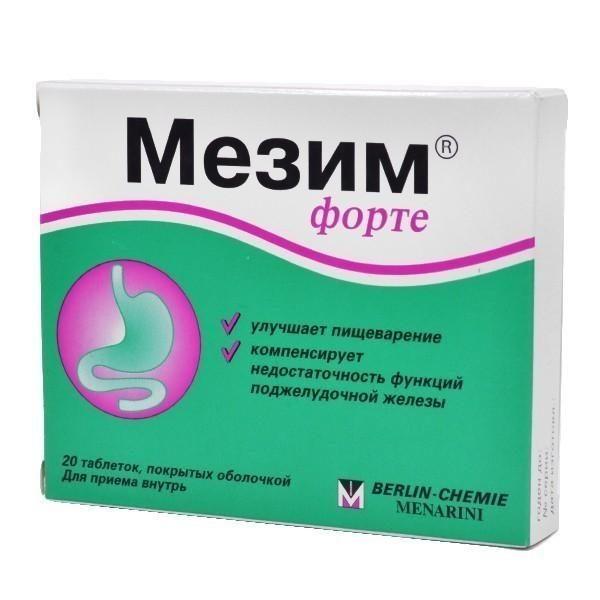
On a note! After taking Mezim, you should not take a horizontal position. It is better to sit or stand until the effect appears. Otherwise, the tablet will begin to dissolve in the esophagus and will not have the desired effect.
The drug is usually taken when one-time digestive problems occur and facilitates the process of digesting food. Suitable for those who often suffer from flatulence or have problems with bowel movements. The course of treatment with the drug is usually short, but in the treatment of chronic pathologies it can last several months. Festal is taken 1 tablet during meals or immediately after.
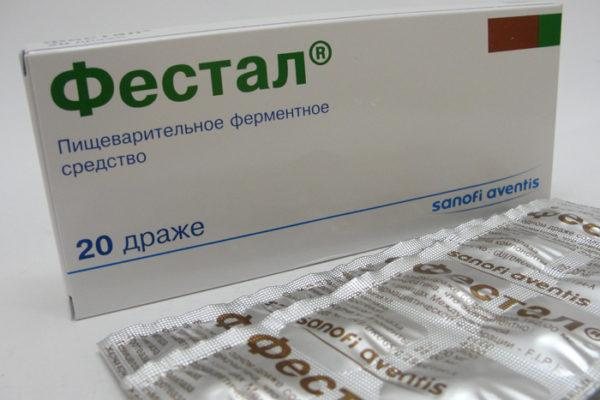
It is also a fairly well-known drug, which is most often used in cases of diarrhea. However, not everyone knows that this remedy perfectly helps with gastritis, ulcers and correcting the action of the gastrointestinal tract in case of prolonged malnutrition. Available in powder form in sachets, take 1 sachet 3 times a day, the contents of which dissolve in water. The medicine can be given even to small children. True, the dose will have to be adjusted: up to 1-2 years - 6 mg, over 2 years - 6-9 mg.
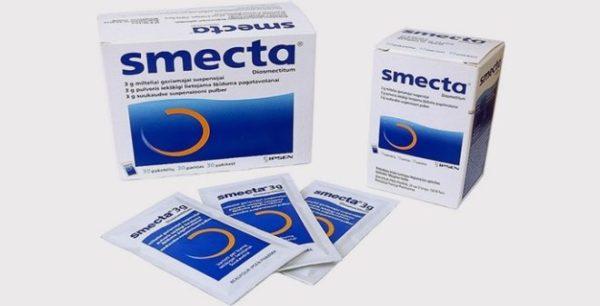
Attention! An overdose of the drug can cause constipation.
It is taken for disorders of the pancreas, dyspepsia and flatulence, as well as for a number of other diseases. It should be taken only as prescribed by a gastroenterologist. The tablet should be taken during meals or immediately after.
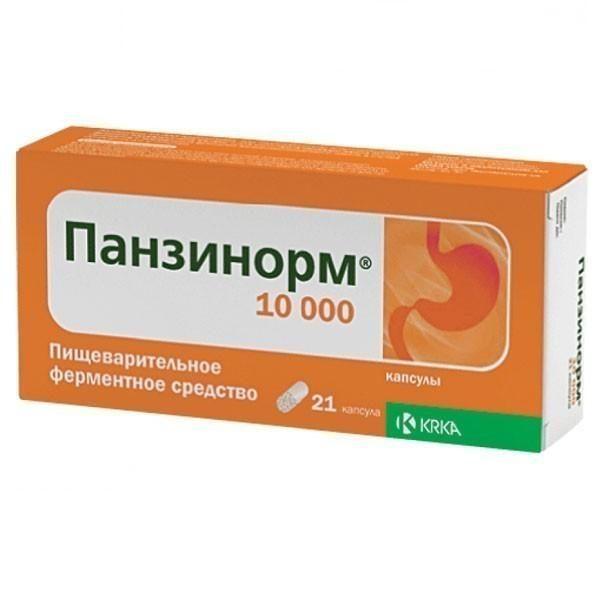
The drugs improve the activity of not only the stomach, but also the duodenum. They do not affect the secretion of the digestive organs. Good for vomiting. But they are not recommended to be used to treat children weighing less than 35 kg.
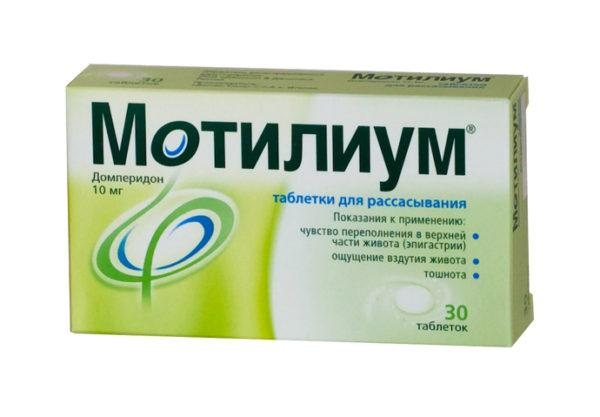
Has a positive effect on gastric acidity levels. It is often prescribed by doctors for diseases associated with increased production of gastric juice. The drug copes well with the effect of heaviness and relieves pain, eliminates belching and excessive heartburn. The functioning of the stomach and intestines will improve. Gastal is available in tablets. It should not be given to children under 6 years of age.
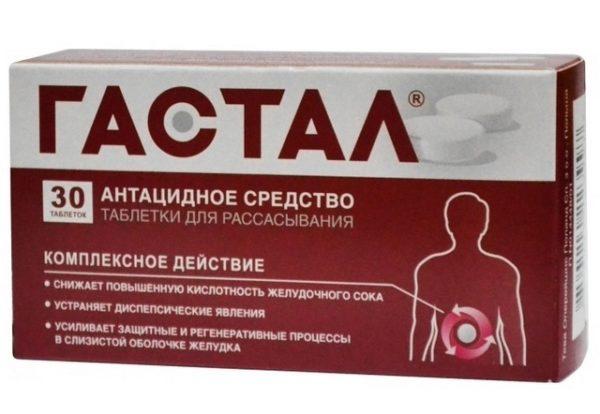
On a note! Gastal is allowed to be taken after drinking alcoholic beverages, coffee and a number of medications that could provoke the production of excess acid in the stomach.
A fairly well-known drug that is used to reduce stomach acidity - it breaks down acid into water and salts. Thus, pH values are normalized. However, you need to take the drug with caution, since its composition is similar to baking soda and can greatly change and even disrupt the acid-base balance of the stomach.
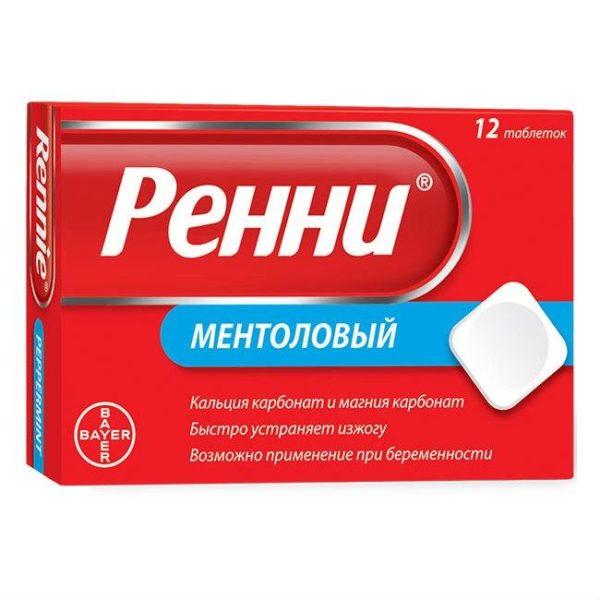
Why is this happening
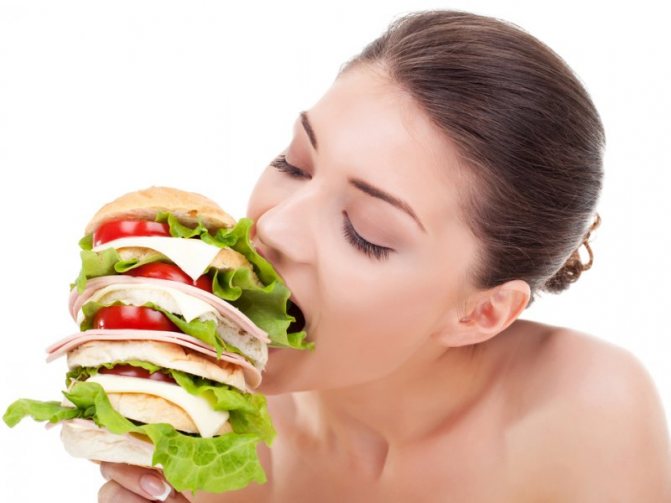
The causes of heaviness in the stomach can be quite commonplace, and most people have encountered this. For example, from overeating during a feast to eating too heavy food - fatty, fried, spicy, with a lot of baked goods, soda, butter creams. In this case, pills for heaviness in the stomach will help restore good health again.
But there are problems that are even more serious. When every meal ends with a feeling of heaviness, this is no longer normal. And when this is accompanied by pain of varying intensity and other unpleasant symptoms: belching, vomiting, heartburn and the like, you should definitely visit a specialist. Situations in which you should not postpone a visit to the doctor:
- frequent vomiting, moreover, with undigested food debris;
- pain of various types in the abdomen;
- temperature jump to 37.5 degrees and above;
- diarrhea with a characteristic greenish color or watery appearance;
- decreased appetite or complete absence of it;
- weight loss.
These manifestations may include constant heaviness in the epigastrium, bloating of the intestines, pale skin, and rumbling in the abdomen. First of all, you need to exclude from your diet those foods that cause this condition. And if the symptoms do not disappear even after this, you must, without delay, visit your doctor, undergo an examination and find the cause.
Important! If the listed symptoms occur in an acute form and bring unbearable pain, you must call an ambulance so as not to miss the condition of an “acute abdomen” that requires emergency care.
Traditional methods
If you don’t have any medications at hand, and for some reason pharmacies are out of reach, then you can try to get rid of heaviness in the stomach using folk methods. For example, decoctions prepared with chamomile or yarrow can help. You can also try drinking a remedy made from calamus or fennel root. Tea with cumin or steamed seeds of a plant such as dill will also help overcome heaviness.

On a note! A number of traditional medicine can also be used to prevent the onset of severity. But in any case, you shouldn’t abuse them.
You can also include buckwheat porridge in your menu as a preventive measure. It is recommended to temporarily replace raw fresh vegetables with stewed ones, and completely abandon fruits, replacing them with dried fruits.
How to get rid of the feeling of heaviness in the stomach

It is possible to get rid of heaviness in the stomach on your own if it is a one-time case of overeating. Having been digested, the food enters the intestines, and the feeling of fullness goes away. If stomach discomfort occurs with constant regularity, you should immediately consult a gastroenterologist. To treat burdens in the stomach and abdomen, methods of both traditional medicine and drugs are suitable.
Folk remedies
Home treatment for heaviness in the upper abdomen is possible if you have already visited a specialized doctor, and he has given you recommendations on a parallel maintenance regimen using folk remedies. Forget about overeating, bad habits, follow the course of treatment prescribed by the doctor. Then alternative medicine methods will help. Here are some recipes to get rid of frequent bloating and abdominal discomfort:
- A decoction of chamomile flowers, drunk one hour before meals, will soothe the walls of the stomach. Pour a tablespoon of dry herb into a liter of boiled water and bring to 100°C. Cover with a lid and allow the leaves and flowers to settle. Strain.
- Aloe juice with honey. Wash the fleshy leaves of the plant, remove thorns and grind through a meat grinder. Mix the gruel with honey 1 to 10. Take the product carefully, one spoon at a time, based on the results of stomach acidity. If it is low, consume the mixture an hour before meals; at high levels - half an hour after eating.
- Rosehip infusion. Pour half a liter of boiling water over 25-30 g of dried fruits. Leave for about an hour. Drink 2 times a day, 50 ml.
- Porridge made from buckwheat or oatmeal will help get rid of bloating and abdominal discomfort if consumed regularly.
- Pour a glass of boiling water over dried dill seeds (one spoon) and let it brew. Strain after 15 minutes. A few sips before each meal will help keep your stomach and abdomen comfortable.
Medications
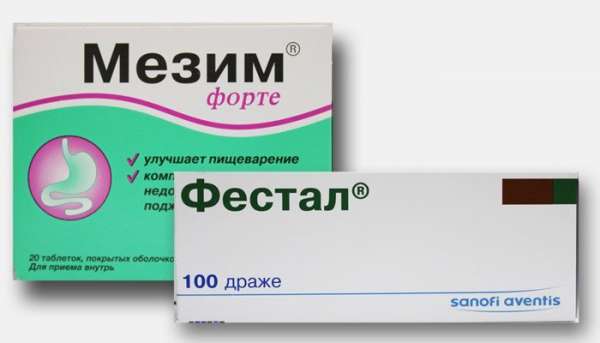
What can be done so that self-medication with medications does not become a kind of lottery and you do not have to suffer doubly from abdominal pain? Refer to the appointment of a qualified professional. The doctor will tell you what to drink, what to take, so as not to feel discomfort or stomach pain after eating. When buying stomach pills at a pharmacy, carefully read the information in the instructions about the composition, method of use and warnings. Medicinal and enzymatic preparations often used in medical practice to relieve heaviness in the abdomen and stomach:
- "Festal";
- "Mezim";
- "Omeprazole";
- "Motelak";
- "De-nol";
- "Motilium";
- "Pangrol";
- "Gastal";
- "Renny."
Belching can be either a normal physiological condition, a reaction to food intake, or a symptom of a pathological condition of the body. If other symptoms are added, for example, nausea, heaviness in the stomach, upset stool, you should undergo an examination and determine the cause of these phenomena. Any belching, accompanied by unpleasant, painful sensations, and a strange smell, is a sign of a gastrointestinal tract disorder.

